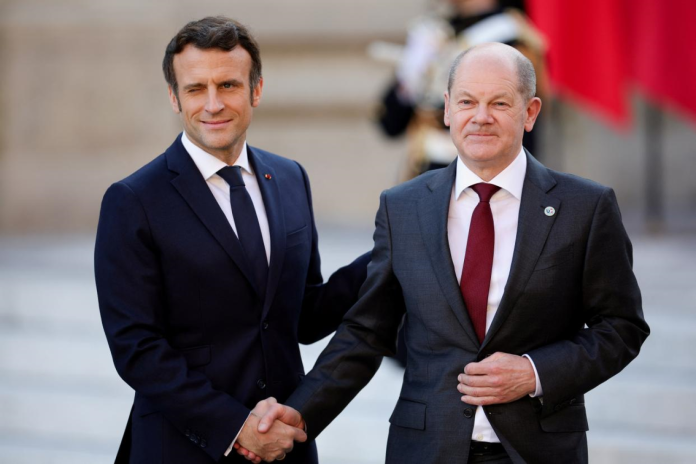Relations between the German chancellor and the French president have been productive, but the Ukraine-Russia conflict has led to tensions and put a number of issues into question, The Week reported.
Isabelle Lasserre, a French journalist, in Le Figaro writes that “Olaf Scholz and Emmanuel Macron have never liked each other,” adding as follows: “They’ve nothing in common. Germany’s chancellor is an ‘austere Protestant’ of the traditional Left, and was raised in the ‘pacifist tradition’.”
While the French President is a “spontaneous disruptor” who heads the EU’s only nuclear-armed state and is not afraid to speak his mind.
Since Scholz took power in 2021, the leaders of the two neighbouring countries have clashed over a wide range of issues, including economy and defence, as well as energy policy. Despite, so far they have almost always found ways to overcome crises and speak with one voice for the common good of Europe.
In recent months, however, an increasingly bitter public dispute has erupted between them, catalysed by their opposing views on the conduct of the war in Ukraine. Berlin sees Macron as a free-shooter who acts without consulting his EU and NATO allies: he has been particularly angered by the proposal to commit NATO ground troops to Ukraine.
Paris, for its part, is upset by Scholz’s refusal to send Taurus missiles to Kyiv for fear of provoking Putin, and sees it as typical of his habit of doing “too little and too late,” reports Stefan Meister in Le Monde.
“Germany still looks to the US for security leadership in Europe, France entertains visions of a ‘Europe that protects’,” according to Clea Caulcutt and Hans von der Burchard on Politico, who noting that the main cause of the rift is the US.
Even so, they say, the dispute will become meaningless if Donald Trump is re-elected in November. If that happens, Europe faces the very real danger of confronting Putin without US support.
Polish Prime Minister Donald Tusk deemed it necessary to hold talks with both leaders last week in an attempt to revive the Weimar Triangle.
Macron and Scholz must bury their differences, agreed Christopher Ziedler in Der Tagesspiegel.
There has rarely been a more crucial moment for European powers to speak with one voice, and this childish squabble must not be allowed to overshadow the EU summit due to start in Brussels this week. If that happens, you can be sure the champagne corks will be “popping in the Kremlin,” Ziedler noted.
